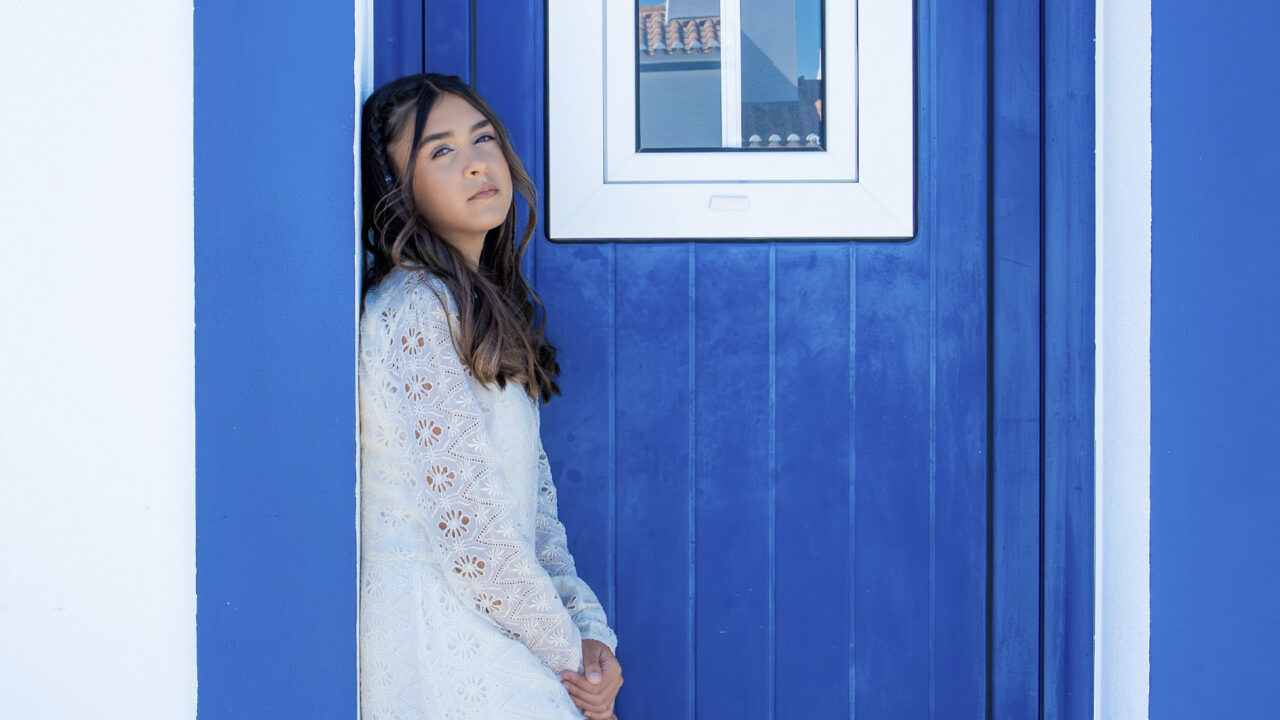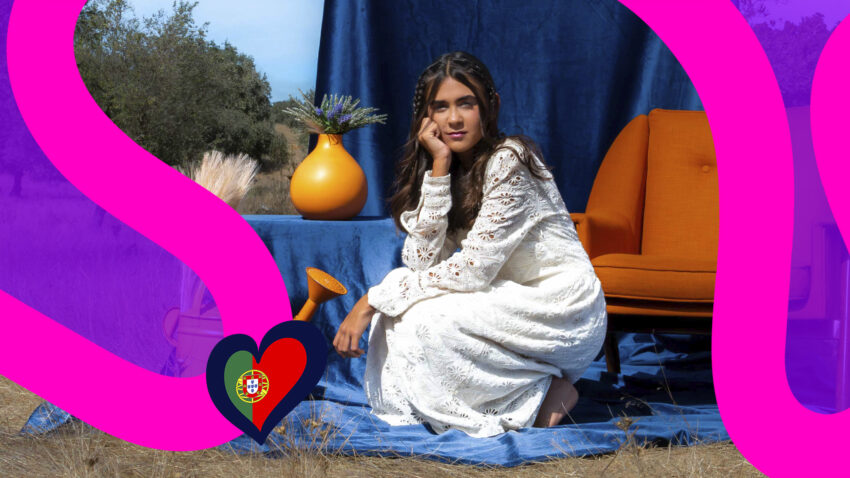Georgia is preparing in full splendor to host the Junior Eurovision Song Contest 2025 in its 23rd edition, where in less than a month the representatives of the 18 delegations will arrive to compete in the children’s contest and come together through music on stage. Tbilisi, the capital of Georgia, takes over the organization of the most important junior musical event in the world for the second time in its history, after its victory in the previous edition held in Madrid in 2024.
The long-awaited event for all participants will take place next Saturday, December 13, from the spectacular stage that will be installed in the Tbilisi Olympic Palace. There, the representatives of the countries competing in Junior Eurovision 2025 will delight us with the performance of their songs while living a unique and long-dreamed-of experience.
With very little time left until the great celebration of Junior Eurovision 2025, it is time to get to know each of the contestants who are striving to win the crystal microphone trophy.
How did they reach Junior Eurovision? What are their dreams? Where does their passion for music come from? What do their entries — with which they will compete in Tbilisi 2025 — mean to them? We delve into their daily lives to learn more about the representatives of the 23rd edition. For many of them, Junior Eurovision was a great dream that has finally come true.
The protagonist of this article is Inês Gonçalves, Portugal’s representative at the Junior Eurovision Song Contest 2025 with the song “Para Onde Vai o Amor?” The young Portuguese soloist earned her ticket to represent the country on the night of July 13 to 14, after becoming the winner of The Voice Kids Portugal 2025.
This is Inês Gonçalves: a voice that rises from the plains of Alentejo

Inês Gonçalves is a 12-year-old Portuguese singer born in the Alentejo region. She lives in Ourique with her mother and siblings, although she maintains ties with Penafiel, where her father resides. She is in the sixth grade and from a young age showed an inclination for music. Her parents encouraged her talent by enrolling her in cante alentejano classes. At school, she learned several instruments, becoming a precocious multi-instrumentalist: she masters or studies drums, guitars, piano, violin, trumpet, cavaquinho, transverse flute, bass, viola campaniça, and ukulele. Her favorite instrument is the drums, which she began playing in fifth grade thanks to the encouragement of her teacher.
She is part of the Ourique Children’s Choir and of a vocal trio dedicated to cante alentejano, where she has developed her understanding of polyphony. At nine years old, she sang with Buba Espinho, with whom she participated in concerts and in the music video É Tão Grande o Alentejo. Her friendship with Buba strengthened, and he became her mentor. Inês gained visibility by appearing on Got Talent Portugal and later on The Voice Kids, where all four coaches turned their chairs after hearing her perform A Janela. She chose Miguel Cristovinho (DAM A) as her mentor and, after receiving the “Super Pass,” advanced to the final, where she won by performing Rosa Albardeira.
She leads a simple and studious life; she enjoys dancing, swimming, and composing. She dreams of becoming an actress or working in fashion, although her priority is music. She admires Buba Espinho, DAMA, Bruno Mars, AC/DC, and Metallica.
“Para Onde Vai o Amor?” is a Portuguese ballad with shades of cante alentejano, composed by Aurora Pinto, Bernardo Espinho, João Direitinho, and Miguel Cristovinho.
This is “Para Onde Vai o Amor?”, Portugal’s entry for Junior Eurovision 2025
“Para Onde Vai o Amor?” (“Where Does Love Go?”) is the entry with which young Inês Gonçalves represents her country at the Junior Eurovision Song Contest 2025. Faithful to Portuguese culture, the song is written in Portuguese to convey, once again in a Eurovision event, the roots and traditions of Portugal that so deeply captivate audiences worldwide.
The song is a moving pop ballad of great sensitivity, immediately standing out for its lyrical depth. The composition was created by a quartet of talented Portuguese lyricists and musicians, including Miguel Cristovinho and Buba Espinho.
The blend of established talents ensures that the song, while accessible, maintains high artistic quality and cultural resonance.
At the heart of the piece lies an existential and universal question: what happens to a person’s love and memory when they are no longer here?
The lyrics explore the concept of “saudade,” that untranslatable Portuguese word that encompasses melancholy and longing for something absent.
Inês, with astonishing vocal maturity, sings about how love does not disappear, but instead transforms and settles within, turning loss into a “shelf of memories.”
This message of comfort and hope, wrapped in a captivating melody and supported by understated yet effective instrumentation, gives the song undeniable emotional power that resonates with audiences of all ages, positioning it as one of the strongest ballads in the competition.
A crucial factor elevating the song is the performance of Inês Gonçalves. Her voice has been consistently praised for its warmth, expressiveness, and ability to convey genuine emotion. The transition from whispered, reflective verses to a powerful and reaffirming chorus showcases remarkable dynamic control for an artist her age.
This ability to evoke a deep connection with the listener is precisely what analysts have highlighted as her greatest competitive asset in Junior Eurovision, allowing the ballad to transcend the language barrier.
This sensitive interpretation could strike an emotional chord with both the professional jury and the general public. The truth is that, regardless of the final result, for Inês, stepping onto an international stage like Junior Eurovision is already another achievement in her promising career.
Lyrics of Para Onde Vai o Amor?
Portuguese
Como é que o amor não se vê,
Se eu o sinto aqui, tão presente?
Como é que o amor só se sente,
Se ele é tão de mim, que é quase gente?
Para onde vai o amor,
Quando chega a hora de ir embora?
E para onde vai a saudade,
De quem foi e já não volta?
Vou guardar em mim
Esta estante de memórias,
É o lugar da nossa história,
Mesmo longe, estás aqui,
Afinal tu não partiste,
Não dá p’ra dizer adeus a quem eu sou
Como é que o amor…
Como é que o amor não se vê,
Se eu já vi quem não se dava virar amigo?
Se é capaz de encontrar quem está perdido?
Mais vale sentir que fazer sentido
E de onde vem o amor,
Que responde a todos os porquês?
Ele é da gente, é de quem sente,
Está nos olhos de quem o quer ver
Vou guardar em mim
Esta estante de memórias,
É o lugar da nossa história,
Mesmo longe, estás aqui,
Afinal tu não partiste,
Não dá p’ra dizer adeus a quem eu sou
Como é que o amor…
Afinal, é assim que o amor se vê
English
How is it that love can’t be seen,
If I feel it here, so present?
How can love only be felt,
If it’s so much a part of me, it’s almost human?
Where does love go,
When the time comes to leave?
And where does longing go,
For those who left and won’t return?
I’ll keep within me
This shelf of memories,
It’s the place of our story
Even far away, you are here,
After all, you never left,
I can’t say goodbye to who I am
How is it that love…
How is it that love can’t be seen,
If I’ve seen those who didn’t get along become friends?
If it can find those who are lost?
And if feeling matters more than making sense
And where does love come from,
That answers all the whys?
It belongs to us, to those who feel it,
It’s in the eyes of those who want to see it
I’ll keep within me
This shelf of memories,
It’s the place of our story
Even far away, you are here,
After all, you never left,
I can’t say goodbye to who I am
How is it that love…
After all, that’s how love is seen
Portugal in Junior Eurovision
Portugal debuted in Junior Eurovision in 2006, after broadcasting the 2005 edition. Its first representative, Pedro Madeira with “Deixa-Me Sentir,” finished in second-to-last place, the same result achieved by Jorge Leiria with “Só Quero É Cantar” in Rotterdam 2007. In these early participations, RTP selected its representatives through the children’s version of Festival da Canção. However, the poor results, the cost of participation, and the low viewership led Portugal to withdraw for nine editions.
The return came in 2017, driven by Salvador Sobral’s victory in the adult contest. Mariana Venâncio represented the country with “Youtuber.” Since then — except in 2020, when Portugal withdrew due to the pandemic — the country has maintained a regular presence, although with mixed results.
Since 2021, RTP has chosen its representatives through The Voice Kids Portugal. That year, in Paris, Simão Oliveira earned 101 points with “O Rapaz,” reaching 11th place and marking an improvement in the country’s trajectory. In Yerevan 2022, Nicolas Alves with “Anos 70” achieved 8th place and 121 points, one of Portugal’s best results. In Nice 2023, Júlia Machado with “Where I Belong” earned 75 points and 13th place, bringing Portugal back to the lower part of the scoreboard.
In Madrid 2024, Victoria Nicole nearly achieved victory with “Esperança,” composed by herself in Spanish and Portuguese. She received 213 points and finished second, just 26 points behind the winner. She placed fourth with the juries and was the most voted entry online with 117 points.

